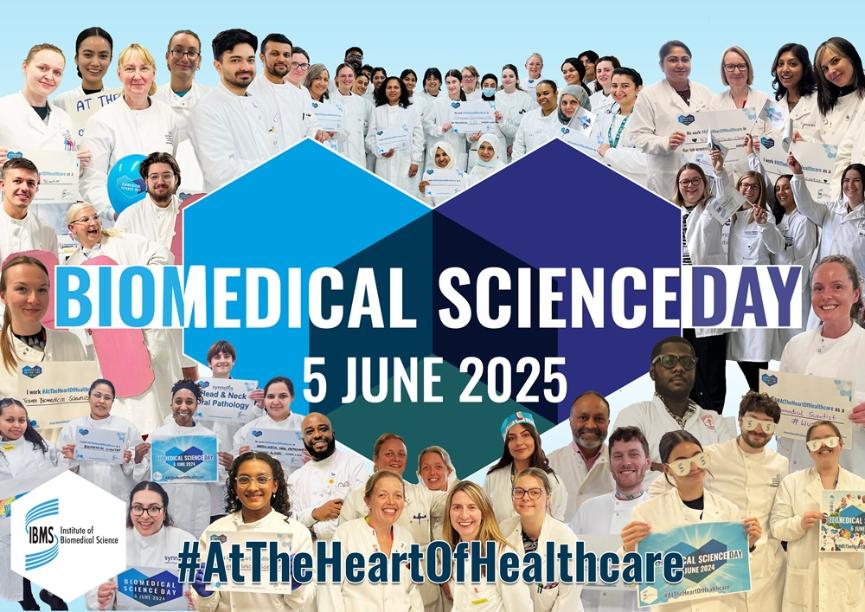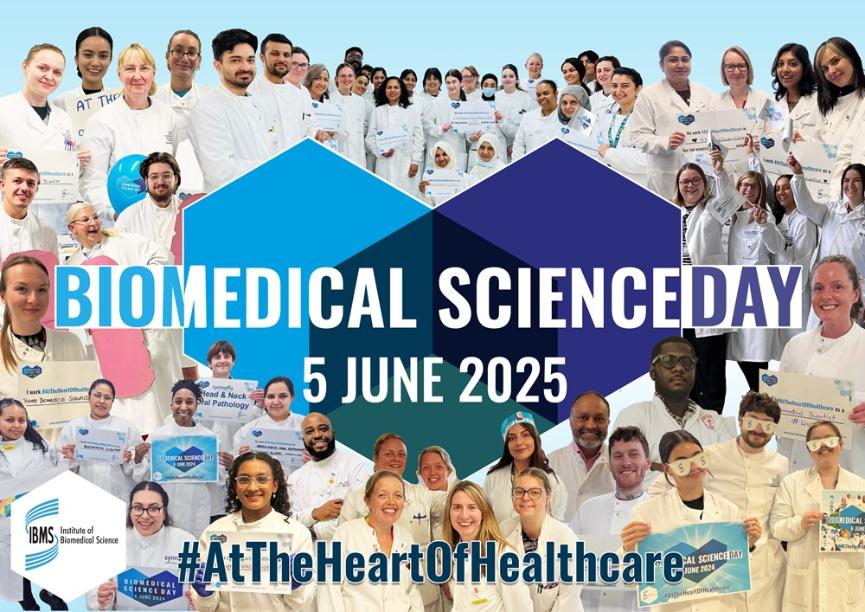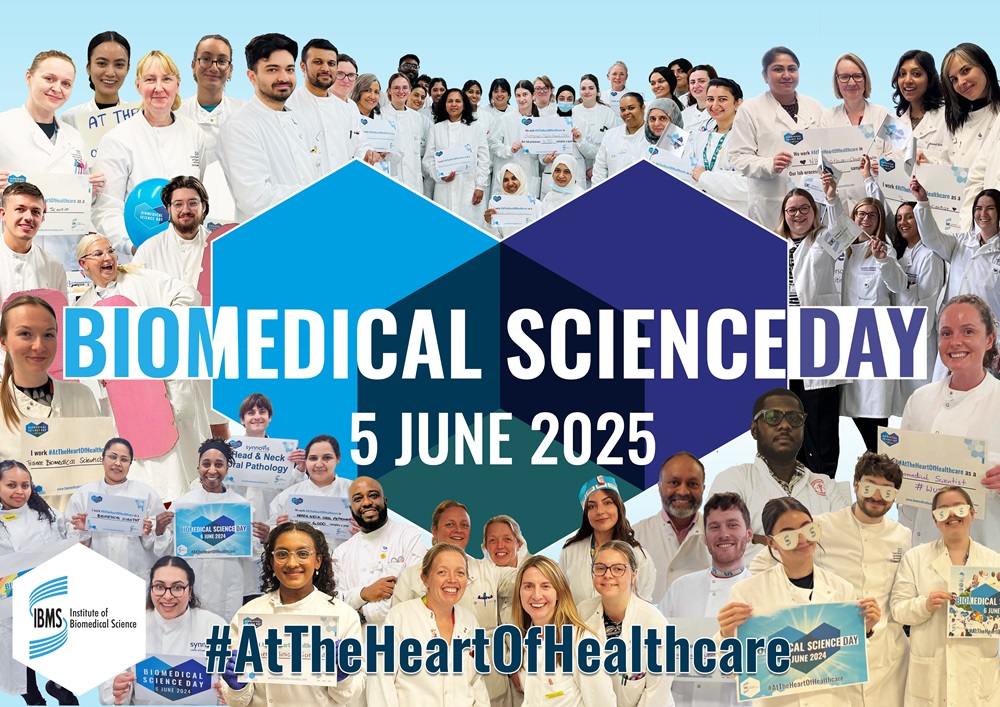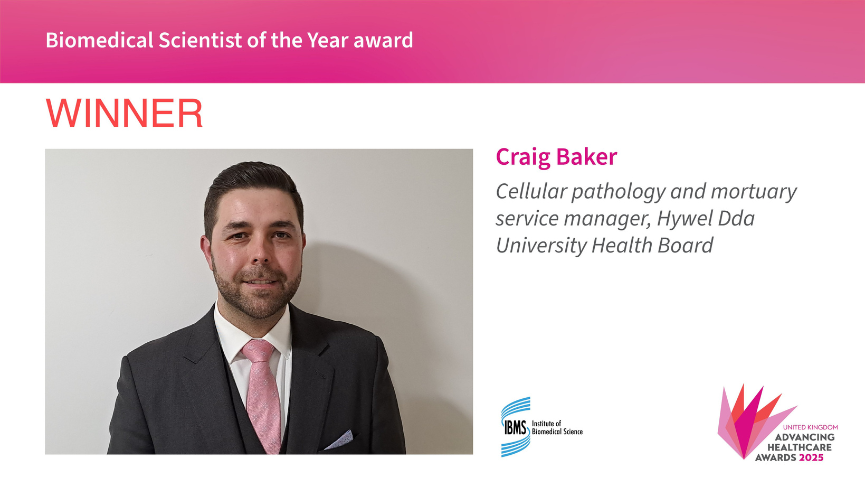Noor Malik: becoming a biomedical scientist

Newly registered biomedical scientist, Noor Malik, discusses her journey into the profession and her experiences navigating the early stages of her career.
We interviewed Noor Malik, a newly registered biomedical scientist, about her journey into the profession and her experiences navigating the early stages of her career.
Noor's interest in biomedical science was shaped by her passion for science and her desire to make a difference in patient care. Starting with the Practitioner Training Programme (PTP), Noor gained insights into the field that laid the foundation for her role today as a biomedical scientist.
During our conversation, Noor shared her career path, the challenges she has overcome, and her advice for aspiring biomedical scientists.
A passion for the profession
While pursuing the PTP, Noor deepened her knowledge of science through diverse modules while also gaining vital hands-on experience in placement settings. This combination of academic learning and practical application solidified her commitment to the profession.
Her experience in haematology, transfusion labs, and rotating through various departments made her acutely aware of the critical, yet often unseen, role biomedical science plays in patient care.
She comments:
It’s incredibly rewarding to contribute to processes that directly improve patient outcomes. The work we do may often take place behind the scenes, but its significance in improving lives cannot be overstated.
The transition to biomedical scientist
Noor’s transition from completing the PTP to her current role as a biomedical scientist has brought new challenges and responsibilities. While the PTP helped her build a strong foundation, stepping into full-time practice was an adjustment.
In my first few weeks as a Band 5 biomedical scientist, I’ve had to adapt quickly to the pace and pressure of the lab. The biggest shift has been moving from supervised practice to making independent decisions that directly impact patient care. As a student, you are limited to what you can do and the decisions you make, however, this changes once you become registered.
This shift can be daunting but Noor received plenty of support from her colleagues, helping her adapt to the fast pace and pressure of working in a clinical environment.
Skills for success
In her early career, Noor has identified several key skills that have been crucial for her success. Attention to detail, particularly in the laboratory settings she works in, is essential, as even small errors can have significant impacts on patient outcomes.
Adaptability is also critical. In a fast-paced clinical environment, this skill has served her well.
Whether it’s managing urgent requests or troubleshooting unexpected issues, being able to stay calm and adjust quickly is very important.
Communication and time management round out Noor’s toolkit. From ensuring effective teamwork in the laboratory to balancing the demands of coursework, laboratory work, and portfolio maintenance during the PTP, Noor stresses the importance of staying organised and working efficiently.
Keep your portfolio up to date as you go. Having a detailed and well-organised portfolio will be invaluable later on.
Advice for aspiring biomedical scientists
Noor’s advice for those starting their journey in biomedical science is straightforward:
My biggest piece of advice to students just starting their journey in biomedical science is to ensure they choose an IBMS Accredited course, especially if they want to pursue a career in biomedical science. Despite it being a minor detail, it is often overseen, and many people realise too late that an IBMS Accredited course is required to become registered with the HCPC.
Rewarding aspects of the job
For Noor, the most rewarding aspect of her job is knowing that her work contributes directly to patient care. Every test she performs supports clinicians in making accurate diagnoses, which can be life-saving. Whether identifying a blood group for transfusion or detecting a haematological condition, Noor takes pride in knowing that her work is a crucial part of the healthcare process.
Raising awareness of biomedical science
Noor is passionate about raising awareness of biomedical science, both within the healthcare system and among the general public.
By spreading awareness of biomedical science, I want people to understand the vital role we play within the healthcare system. Many people don’t realise that biomedical scientists contribute to a significant percentage of all patient diagnoses. I want to bring more recognition to the profession and inspire others to consider it as a career path. Biomedical science is a very versatile field with many pathways that can be taken to become a biomedical scientist as well as the various disciplines that can be considered.
Noor also hopes that increased awareness helps patients and the general public understand more about the work of biomedical scientists.
Biomedical science can feel very removed from the patient's experience, but in reality, it’s the backbone of effective healthcare. By educating others about our work, I hope to bridge that gap and foster a greater appreciation for the importance of diagnostic science.
By sharing her experience and promoting the profession, she hopes to inspire others to consider biomedical science as a career.




